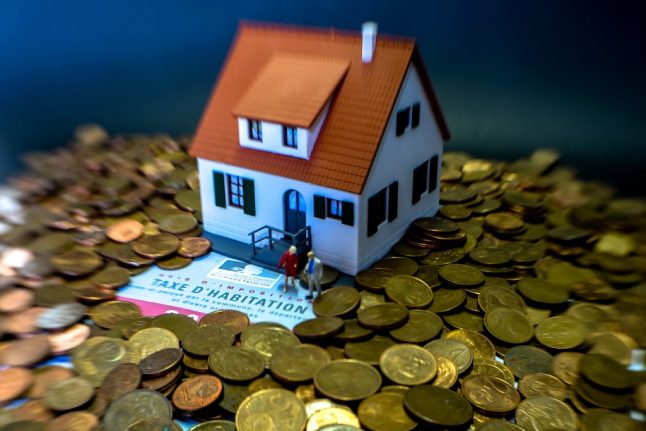There are two main types of property tax in France, taxe foncière which is paid by the building owner and taxe d'habitation which is paid by the person who lives in the building.
And it's the taxe d'habitation that has been undergoing a gradual phasing out over the last three years, leaving many people liable to pay nothing at all.
The original plan was to phase it out completely by 2023, but President Emmanuel Macron has now said that, due to the unprecedented economic situation caused by the pandemic and lockdown, some people could continue to pay it for the foreseeable future.
So who will pay the tax, which falls due in the autumn, in 2020?
READ ALSO The French tax calendar for 2020: What taxes are due and when?
Well firstly second home owners still have to pay it. And as property owners you also have to pay the taxe foncière, which in some areas has seen a sharp increase.
For people living in their primary (or only) residence, taxe d'habitation is now means tested, with only the higher earners still obliged to pay.
But the cut-off point for this is actually quite low, so it's far from only the super-rich who will be paying this.
For this year's bills, only the people who are in the top 20 percent of France's income bracket will receive a bill.
According to French national statistics body INSEE this works out as;
For a single person – an income of €27,706 or more per year
For a couple with no children or one child – an income of €44,124 or more
For a couple with more than one child – an income of €56,438 or more
The median income level in France is €1,692 per month (or €20,300 per year) and half of the households receive less than this amount in annual income from salaries, pensions or benefits.
The 10 percent of people in the lowest income bracket have an annual income of €10,860 (€905 per month).



 Please whitelist us to continue reading.
Please whitelist us to continue reading.
So how are we actually informed that we have to pay the taxe d’habitation ? Should I be watching out for a letter ?
Hi, I am English & have lived in France for 18 years now, last year 2019 I sold my house in Alloue & paid my taxes Fonciere & Habitation at theat address, in 2018 I bought a house In Saint Maurice des Lions required renovations, I have also have paid both the taxes on this house, I did live in this house in January 2019 & did not movre here until September 2019 as the completion on the Sale of the Allouse was delayed due UK buyers problems. Did I have to pay both of taxes ? I am 73 years old, retired & get my pensions from the UK & the annual amount has been approx €18.000-19000 depending on the exchange rates, I complete my Income tax declaration online in France. I will I have to pay tax Habitation for 2020. Regards April
I am incredibly annoyed with my local authority who have sent me no bills since I moved here in late 2016. Last year they took €91 out of my bank account without any notice as punishment for not paying the taxe foncière they said I should have paid starting August 2018. But having had no bill, no letter, no email, no phone call how am I supposed to know I am supposed to pay? Again the same has happened this year in spite of my paying something monthly for the last 10 months I’ve just had another bill telling me I have to pay by October or else. Well I don’t have €1200 going spare and in spite of my offering to pay monthly and demanding why no bill was sent I am facing brick walls as if I chose not to pay any bills I am aware of! Do I have any recourse ! I’m 72 live alone in a pension that has dropped almost €2000 a year since Brexit but haven’t stopped paying any of my bills. This lack of empathy or understanding goes against the welcome I’ve had from every other quarter here in France.